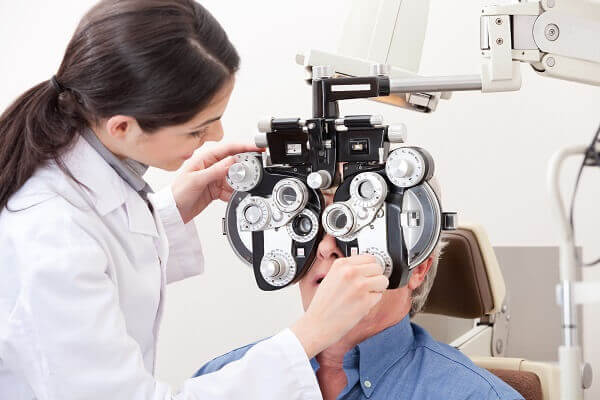The Texas Optometry Board is the regulatory agency tasked with overseeing the practice of optometry in Texas, licensing, and investigations into complaints made against optometrists.
When a complaint is made to the Board, the Executive Director and the Investigation-Enforcement Committee determines whether the complaint is within the legal authority of the Board. For instance, the Board does not have authority to investigate fee disputes or complaints that the doctor or office staff were rude. If the Board determines it does not have jurisdiction over the subject of the complaint, it will notify the complainant that the complaint will not be investigated.
If the Board determines that the subject matter of the complaint falls within their legal authority, it will begin an investigation into the complaint.
Investigation
When an investigation is opened, the complaint is sent to the optometrist to obtain the doctor’s response. The Board requires a complaint from a patient to be accompanied by a patient record release form, which allows the optometrist to send patient records to the Board without violating doctor-patient confidentiality laws.
At this early stage of the investigation process, we strongly urge any licensee receiving notice of a complaint to hire a professional license defense lawyer. Even if you believe the complaint to be meritless, we urge you to seek counsel. How you first respond to the complaint is critical and will affect the ultimate outcome of the investigation.
Once the Texas Optometry Board receives the optometrist’s response, the Board’s investigator and the Investigation-Enforcement Committee determine what, if any, additional information is required to investigate the complaint.
At the conclusion of the investigation the Board will make a determination as to whether the optometry laws have been violated. If it is found that no violation of law occurred, then the investigation is closed.
When the Board Determines a Violation of Optometry Laws Occurred
If after the investigation the Board finds that a violation of optometry laws occurred, then the Investigation-Enforcement Committee may take several actions, including:
- Sending a letter of noncompliance
- Sending a letter of reprimand
- Holding an investigational hearing, and/or
- Referring the matter for formal hearing.
Further, the Board may impose discipline, including license revocation, suspension, probation, a formal reprimand, a letter of noncompliance, and/or administrative penalties.
The Right to Defend Your Optometry License
Throughout the Texas Optometry Board ‘s complaint process an optometrist has the right to defend their licenses. Further, all professional licensees have the right to be represented at every stage of a complaint. Hiring an attorney to help you mount a strong defense serves to protect your license, reputation, financial interests, and your career; it does not make you look guilty.
Hire an Experienced Medical License Defense Attorney
If you have been notified of a complaint filed against you with the Texas Optometry Board, BERTOLINO LLP can help. We are experienced Optometry Board license defense attorneys and we know how to navigate the Board’s complaint process. We are prepared to represent you at any legal hearing or proceeding regarding your professional license.
Our Firm believes that immediately consulting an experienced license defense attorney to review allegations of misconduct helps ensure the most favorable outcome in your case. Our results speak for themselves.
BERTOLINO LLP represents licensed professionals across the entire State of Texas. If you are facing disciplinary action from a professional licensing board, contact us today or call (512) 476-5757 and schedule a case evaluation.
Call or text (512) 476-5757 or complete a Case Evaluation form





